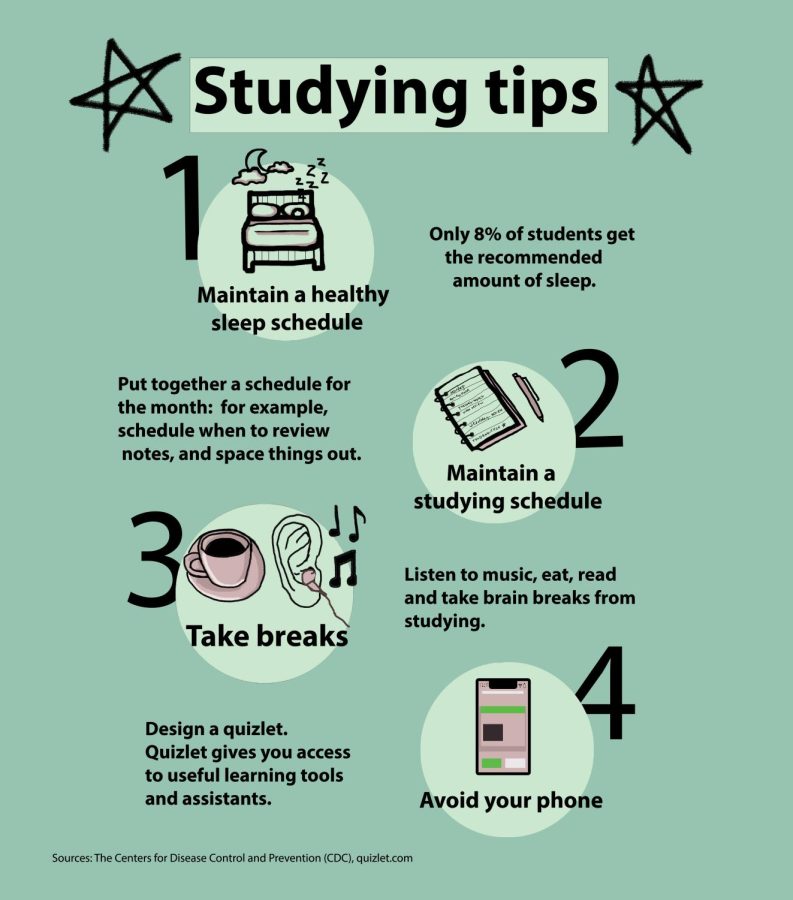Viva Resa: Your Gateway to Insightful Living
Discover news, trends, and tips for a vibrant lifestyle.
Study Smarter, Not Harder: A Playful Approach
Unlock your learning potential with playful tips to study smarter, not harder! Discover fun strategies for academic success today!
Top 5 Techniques to Study Smarter: Unlock Your Learning Potential
Studying smarter is not just about putting in more hours; it's about using effective techniques that maximize your learning potential. Here are the top 5 techniques that can transform your study habits:
- Active Recall: This technique involves actively stimulating your memory during the learning process. Instead of passively re-reading notes, try quizzing yourself on the material. This approach significantly enhances retention and understanding.
- Spaced Repetition: By revisiting material at spaced intervals, you can improve long-term retention. Tools like Anki help manage and apply this technique effectively.
- Interleaved Practice: Switching between different topics or subjects during study sessions can lead to better learning. This approach, known as interleaved practice, encourages deeper cognitive processing.
- Utilizing Visual Aids: Incorporating charts, graphs, and diagrams can enhance understanding. Visual learning is effective for many and can help clarify complex concepts. Programs like Canva allow you to create impactful visuals.
- Setting Goals and Self-Assessment: Establish clear study goals and regularly assess your understanding. Tools like the SMART criteria can guide you in setting effective goals to track your progress.

The Science Behind Playful Learning: How Fun Boosts Retention
The Science Behind Playful Learning highlights the significant role that fun plays in educational settings. Research suggests that when learners engage in playful activities, they tend to retain information better. This phenomenon can be attributed to several scientific principles, including the dopamine release triggered by enjoyable experiences, which enhances memory formation. Furthermore, playful learning environments stimulate curiosity and creativity, making the learning process more dynamic and effective.
Additionally, various studies, including those noted by the Harvard Graduate School of Education, demonstrate that gamification, storytelling, and hands-on activities not only engage learners but also reinforce their understanding of complex concepts. As learners actively participate through play, they develop critical thinking skills and foster social connections, both vital for deeper engagement with the material. Ultimately, the integration of playful learning strategies is not just beneficial but essential for enhancing retention and academic performance.
Is Cramming Effective? Debunking Common Study Myths
Cramming is a study method characterized by intensive review of material in a short time frame, typically just before an exam. While some students believe this approach can be effective, research often contradicts this notion. Studies show that long-term retention is significantly better achieved through distributed practice, where learners space out their study sessions. This enables deeper understanding and memory consolidation, undermining the myth that cramming can yield lasting academic success.
Moreover, cramming can lead to increased stress and fatigue, diminishing performance during exams. The brain's ability to process and retain information is optimized through adequate rest and regular study habits, reinforcing the importance of a balanced study schedule. Instead of relying on last-minute efforts, students are encouraged to embrace a consistent study routine for better outcomes. In conclusion, distancing oneself from the cramming mentality can ultimately foster more effective learning and retention.